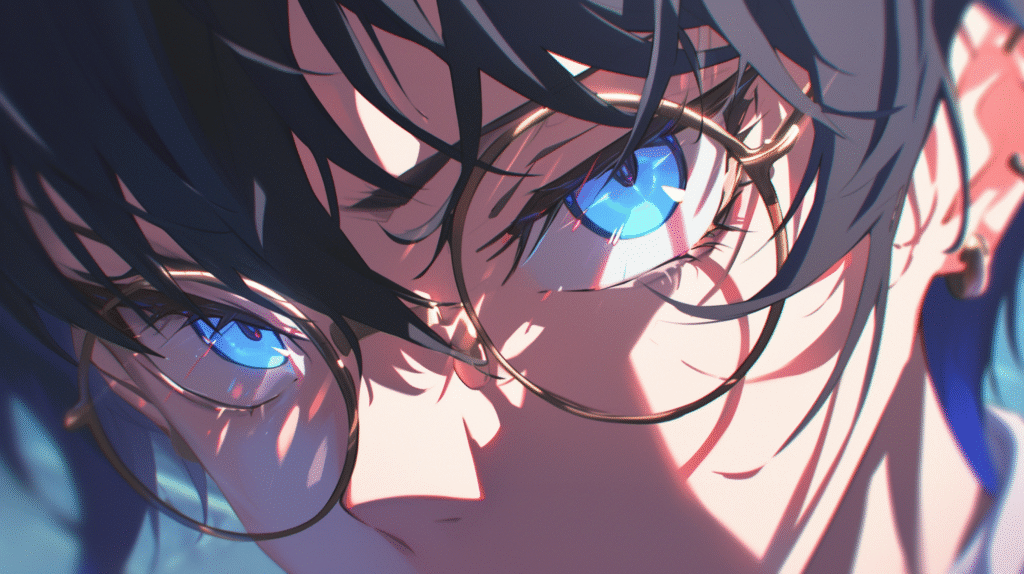Jujutsu Kaisen (JJK Manga), created by Gege Akutami, brings a fresh take to the shonen genre. It goes beyond action-packed fights and plunges into themes like grief, identity, and moral uncertainty. The story centers on Yuji Itadori, an average teenager whose life changes when he swallows a cursed object, becoming host to a powerful evil spirit. From that moment, he’s pulled into a dark world where curses, born from human negativity, threaten society. It’s a gripping, layered tale that explores the cost of survival and the meaning of choosing one’s path amid chaos.
Table of Contents
Origin and Storyline Foundation
Yuji Itadori begins as a regular student with little interest in the supernatural. But when he consumes a cursed finger to save his friends, he becomes the vessel for Sukuna, a legendary curse. That one moment changes everything. Yuji gets drawn into the world of jujutsu sorcery—a realm where cursed spirits roam and jujutsu sorcerers fight to protect civilians. His personal goal becomes clear: to help others while leading a meaningful life, even if it’s short. This foundation gives the story emotional stakes, raising deep questions about duty, sacrifice, and the struggle to stay true to one’s values.
Mature Themes and Narrative Boldness
What sets JJK apart is its unflinching tone. It doesn’t shy away from pain or moral dilemmas. Characters die and stay dead, and victory often comes at a cost. The manga explores trauma, vengeance, guilt, and how people cope with tragedy. These themes aren’t presented in dramatic speeches—they’re felt in quiet moments, hard decisions, and the scars left behind. JJK doesn’t promise happy endings. Instead, it asks readers to think critically and reflect emotionally. It builds a world where every action matters, and the weight of those actions ripples far beyond flashy battles and heroic poses.
The Cursed Energy System
The series introduces cursed energy—a power rooted in human emotion, especially negativity. Sorcerers harness this energy through training, not just in physical combat, but in mastering their emotions. This makes each power unique to the user’s personality. Some techniques reflect rage, others fear or regret. When fighters unleash Domain Expansions, they’re revealing their innermost selves. This adds a psychological layer to every fight. Battles are as much about emotional exposure as physical strength. The power system is more than mechanics—it mirrors the characters’ minds and makes every encounter deeply personal, often exposing their deepest fears and hopes.
Characters Who Defy Convention
JJK’s characters aren’t boxed into clichés. Yuji isn’t a glory-seeking hero—he’s compassionate and grounded, driven by a desire to do what’s right. Gojo Satoru, the strongest sorcerer, mixes arrogance with genuine care and emotional complexity. Female characters like Nobara Kugisaki and Maki Zenin break stereotypes. They’re fierce, confident, and multi-dimensional. Even antagonists are written with nuance, often pursuing twisted goals with understandable motivations. These complexities make each character feel real. You understand their decisions, whether noble or destructive. The result is a cast that grows with the story and earns every victory, failure, and transformation they experience.
Evolving Visual Identity
JJK’s art style evolves with the story. In early chapters, the illustrations are gritty and sharp, perfectly suited to the dark tone. As the series progresses, the layouts become more experimental, enhancing emotional and narrative impact. Gege Akutami isn’t concerned with flawless visuals—instead, the rawness of the artwork adds intensity. The curses are drawn with grotesque creativity, reflecting the fears that shape them. Emotional scenes are handled with subtlety—just a shift in expression or a change in light can carry deep meaning. It’s a visual language that grows with the reader, constantly adapting to what the story needs.
Powerful Themes That Resonate
At its core, JJK wrestles with big questions: What does it mean to live a meaningful life? Is it possible to do good in a violent world? Yuji’s journey explores these ideas without ever giving easy answers. Alongside him, other characters face their own moral dilemmas—some choose revenge, others redemption. The manga doesn’t judge; it simply presents the complexity of human decisions. That honesty resonates with readers, especially those navigating their own hardships. It’s a story that acknowledges darkness but also honors resilience. The emotional depth grounds the action, making JJK not just thrilling, but deeply moving.
A Worldwide Movement
Since its debut, JJK has captured a global audience. Its blend of intense action and raw emotion has made it a standout in both manga and anime circles. The anime adaptation boosted its popularity, but the manga’s storytelling holds its own. Online communities dissect every panel, share fan art, and connect through shared passion. Characters like Gojo and Sukuna have become pop culture icons. But beyond the surface, it’s the story’s emotional truth that binds fans together. The themes of loss, strength, and purpose transcend language and location. JJK is more than a trend—it’s a conversation about life and survival.
Breaking the Shonen Mold
Many shonen manga follow familiar blueprints: underdog heroes, escalating battles, and clear-cut villains. JJK disrupts this formula. Its characters aren’t always right, and victories often leave emotional scars. Flashbacks are used to reframe events, not just fill pages. Fights are strategic, but also philosophical—each opponent is a reflection of the hero’s beliefs and growth. Even the villains challenge our sympathy, forcing readers to question the line between justice and cruelty. This narrative boldness makes JJK unpredictable and grounded. It respects its audience, trusting them to engage with complexity rather than offering simple resolutions or safe plot twists.
Looking Ahead to the Final Arcs
As the series nears its conclusion, tension builds. Major revelations reshape our understanding of past events. Characters reach emotional breaking points. The stakes are higher, but so is the introspection. Gege Akutami has hinted at an ending that won’t tie things up neatly—and that fits the story’s tone. JJK has always embraced uncertainty. The focus now is not just on winning battles, but on what those battles mean. How do characters grow or fall? What legacies do they leave? The final arcs are shaping up to be not just climactic, but deeply reflective of everything the series stands for.
Lasting Legacy and Final Reflections
JJK has already secured its place in modern manga history. It took the familiar structure of shonen and pushed its emotional and thematic boundaries. Its legacy won’t be defined by power levels, but by the questions it asks and the humanity it portrays. Gege Akutami’s storytelling is marked by courage—courage to explore grief, doubt, failure, and hope. As the story closes, it leaves behind more than characters and arcs. It leaves a message: pain is unavoidable, but it can shape strength and compassion. In that way, JJK isn’t just a manga—it’s a reflection of the real world, through a supernatural lens.
Read Latest Post
BaddieHub: The Style Revolution
Baddies Midwest Cast: The Fiercest Crew On Screen






